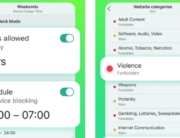PINEHURST — On Tuesday, Aug. 17, 2021, Seagrove resident Angela Hastings started initially to see a sore throat, temperature and nausea. By Friday, the woman throat pain got therefore severe that she couldn’t ingest ibuprofen to aid break the woman chronic high temperature. A trip to the girl physician verified exactly what she performedn’t like to discover – COVID-19.
This amazing Monday, Angela’s previous pastor offered this lady a pulse oximeter for measuring the lady blood air degree. A standard blood air dimension is 95% or higher, but Angela’s got 83%, indicating that their human anatomy was actuallyn’t obtaining air they necessary. Her partner, who additionally had COVID-19 but with more gentle signs, called EMS. Paramedics moved Angela to FirstHealth Moore local medical center in Pinehurst.
Angela does not  recall much after reaching a healthcare facility.
recall much after reaching a healthcare facility.
“I remember asking the Lord to look after me,” she said. “I told my better half to not give up me.”
Angela eventually created pneumonia, a condition that causes the lung area to complete with substance and turn irritated. Medical doctors positioned the lady on a ventilator to breathe for her which help hold the lady alive.
Stats show that once people with COVID-19 enjoy respiration troubles therefore serious they wanted a ventilator, their particular endurance rate was low. “We were informed she had only a 20% chance of rendering it off the ventilator,” stated Angela’s child, Tabitha Gesme. “And if she did make it, she likely would not be by herself.”
Jordanna Hostler, M.D., had been one of Angela’s vital care doctors at Moore local. “we informed Angela’s group that she had an extremely bad prognosis, but we were planning come together,” Dr. Hostler mentioned. She connected Angela’s family with palliative worry, a site that supporting people with life-limiting ailments and their families.
Angela’s personnel
When establishing plans for critical treatment, Dr. Hostler typically utilizes a notion known as “shared decision making.” She presents the main points about a patient’s situation to the families, and they render medical care conclusion as a group.
Angela’s staff made the decision that in case this lady condition declined into respiratory arrest, they would not try to resuscitate the girl.
“We decided not to try CPR or electric surprise because those remedies for clients since ill as Angela are often useless and fatal,” stated Dr. Hostler. “We are probably offer the woman the perfect possiblity to survive not harm the woman in the process.”
Angela’s household adopted the team principle.
“Angela’s family arrived to the lady therapy as a collaboration with her medical care suppliers,” Dr. Hostler mentioned. “They listened and questioned good inquiries. The positive personality they delivered to the situation truly aided myself perform my personal work.”
Tabitha reciprocated the admiration.
“Dr. Hostler was actually a blessing,” she said. “She constantly stored me personally updated on every little thing, and her strategies comprise definitely great for mother.”
Dr. Hostler put a regular objective for Angela’s enhancement, such a prescription reduction that Angela could endure or much less help from the breathing device. Tabitha provided the daily aim with a more substantial, prolonged personnel – an army of Angela’s family and friends. “I’m telling you, I’ve never seen this many individuals praying for somebody,” Tabitha said. “Sometimes, it would need a short time to have whatever you prayed for, but not a unitary prayer had been left unanswered.”
On their feet
One of the numerous aspects of Angela’s cures ended up being sedation treatment so their system would stays however and start to heal. While these medicines were vital, Dr. Hostler informed Angela’s family the longer she is on the paralytic medication, the lengthier it would decide to try retrieve. Additionally, Angela needed to be off these medications before medical practioners could take away the ventilator.
Weaning Angela off of the paralytic medicines showed challenging, because it triggered Angela being anxious and agitated. “Mom held the nurses on their toes,” Tabitha said.






